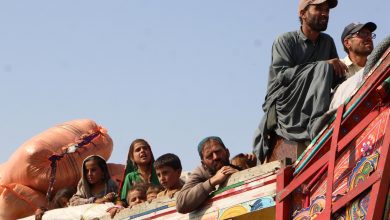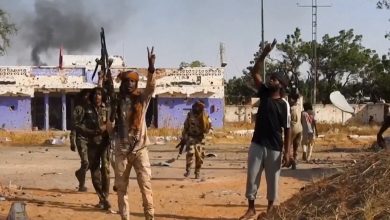The United Nations has issued a stark warning regarding the ongoing conflict in El Fasher, Sudan, accusing the Rapid Support Forces (RSF) of deliberately using starvation as a weapon of war against the civilian population. This accusation comes amid mounting reports of atrocities and a near-total blockade of humanitarian aid to the besieged city, raising grave concerns about the humanitarian catastrophe unfolding in Darfur.
Denise Brown, the UN Resident and Humanitarian Coordinator for Sudan, stated that humanitarian access to civilians in El Fasher has been virtually cut off for over 500 days. “El Fasher is one of the hot spots of conflict and violence,” Brown explained in a press briefing. “We have a large humanitarian team, including local, national, and international partners, in a long area, which is about 50 kilometers from the city, but we have not been able to reach El Fasher for more than 500 days. This practically means that humanitarian aid convoys have been prevented; no food enters, no medical supplies, and no clean drinking water. No support has actually entered.”
Brown further expressed her deep concern over what appears to be a systematic pattern of controlling cities as fortified strongholds, preventing civilians from entering or leaving. She reiterated the UN’s call for safe and unimpeded access for humanitarian workers, emphasizing their neutrality and lack of political agenda. The UN official painted a grim picture of a city under siege, where basic necessities are weaponized, and the lives of innocent civilians are hanging in the balance.
Adding to the urgency, the UN has received credible reports of summary executions of civilians attempting to flee the fighting in El Fasher. While some reports of mass killings remain unconfirmed, the sheer volume of allegations paints a horrifying picture of the situation on the ground. The Sudanese Doctors Syndicate has estimated that 177,000 people remain trapped within the city, describing the events in El Fasher as acts of “genocide, systematic ethnic cleansing, and complete war crimes.”
The Syndicate further reported that its field teams estimate the number of victims in El Fasher to be in the thousands, hampered by communication difficulties and pervasive insecurity. According to their reports, approximately 2,000 civilians were killed in the initial hours of the RSF’s entry into El Fasher, with some victims allegedly burned alive. The Syndicate also noted that the majority of the 177,000 trapped civilians are believed to have been subjected to mass killings, and those who attempted to escape in their vehicles were reportedly burned alive inside them.
The RSF’s recent capture of El Fasher has given them control over the entire Darfur region, a vast area in western Sudan that constitutes one-third of the country’s total landmass. With this territorial gain, the RSF and its allied forces now control western Sudan and parts of the south, while the Sudanese army maintains control over areas in the north, east, and center of the country, regions which have been engulfed in war for over two years.
Amidst the escalating accusations of massacres and human rights violations, RSF leader Mohamed Hamdan Dagalo, commonly known as Hemedti, acknowledged that excesses may have been committed by his forces in El Fasher. In a televised address, Hemedti announced the formation of an investigation committee and claimed to have ordered his troops to withdraw from El Fasher after removing obstacles, handing security responsibilities over to the police. He stated that the people of El Fasher would return to their city safely within days.
For more information about Algeria, check our dedicated section.
However, these promises have been met with skepticism, given the RSF’s history of alleged atrocities and the ongoing humanitarian crisis. The conflict between the Sudanese army and the RSF, which began in April 2023, has resulted in the deaths of an estimated 20,000 people and the displacement of more than 15 million, according to UN and local reports. The fighting has severely disrupted essential services, exacerbated existing vulnerabilities, and pushed the country to the brink of collapse.
The accusations leveled by the UN and human rights organizations against the RSF are deeply troubling and demand immediate action. The deliberate denial of food and essential supplies to civilians constitutes a grave violation of international humanitarian law and may amount to war crimes. The reports of summary executions and mass killings underscore the urgent need for accountability and justice for the victims of these atrocities.
The international community must exert pressure on all parties to the conflict to ensure the protection of civilians, allow unimpeded humanitarian access, and hold perpetrators of human rights violations accountable. A comprehensive and lasting solution to the conflict in Sudan requires a commitment to dialogue, reconciliation, and inclusive governance. The people of Sudan deserve a future free from violence, hunger, and fear.
The situation in El Fasher is a microcosm of the broader crisis in Sudan, a crisis driven by power struggles, ethnic tensions, and a legacy of impunity. Addressing this crisis requires a multi-faceted approach that encompasses humanitarian assistance, political mediation, and transitional justice. The world must not turn a blind eye to the suffering of the Sudanese people. Failure to act decisively will only prolong the conflict and exacerbate the humanitarian catastrophe.
DZWatch will continue to monitor the situation closely and provide updates as they become available. We urge our readers to remain informed and to support efforts to alleviate the suffering of the Sudanese people.
Source: United Nations, Al Jazeera




